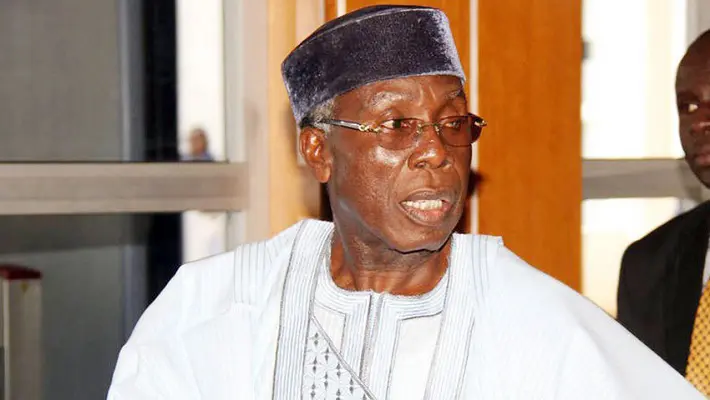The Northern Elders Forum (NEF) has joined Nigerians in mourning the death of Audu Innocent Ogbeh, a prominent statesman and former federal minister, whose passing was reported by Media Talk Africa in the early hours of Saturday. Known for his multifaceted career spanning politics, agriculture, and the arts, Ogbeh’s death has drawn tributes highlighting his legacy as a unifying figure and advocate for national progress.
In a statement issued by its spokesperson, Professor Abubakar Jika Jiddere, the NEF remembered Ogbeh as a “national figure of great repute” and a longstanding member of its Board of Trustees. The group praised his intellectual depth and leadership, describing him as a “voice of wisdom” and a stabilizing force during critical deliberations. “His counsel, integrity, and dedication to the unity and progress of Northern Nigeria and the nation as a whole will be sorely missed,” the statement read.
Ogbeh, who served as Nigeria’s Minister of Communications from 1982 to 1983 and later as Minister of Agriculture and Rural Development between 2015 and 2019, was celebrated for his principled governance and cross-sector contributions. Beyond politics, he was recognized as a playwright, farmer, and intellectual, reflecting a career dedicated to both public service and creative expression. The NEF emphasized his role as “a principled democrat, a patriotic nationalist, and a tireless advocate for peace and cohesion,” underscoring his efforts to bridge regional and ideological divides.
His tenure in agriculture saw initiatives aimed at modernizing Nigeria’s farming sector, though challenges such as climate change and resource limitations persisted. Earlier, as communications minister, he navigated the complexities of Nigeria’s post-colonial infrastructural development. Colleagues and advocacy groups often cited his pragmatism and willingness to engage diverse viewpoints as hallmarks of his leadership.
The Forum characterized Ogbeh’s death as both a “personal loss” to its members and a “profound loss to Nigeria,” reflecting the breadth of his influence. Tributes from political peers and civil society groups have echoed similar sentiments, emphasizing the vacuum left by his absence in national discourse.
As condolences pour in, Ogbeh’s legacy is poised to endure through his policy contributions and his relentless push for unity in a region often grappling with ethnic and religious tensions. His passing marks the close of a chapter for Nigerian leadership, with many underscoring the need to uphold the values of integrity and dialogue he championed.
